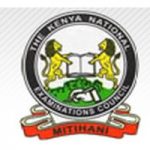Closure Date: 08/Dec/2018, 1:59:00 AM
Organizational Unit: FAO REPRESENTATION IN KENYA
Job Type
: Non-staff opportunities
Type of Requisition: Consultant / PSA (Personal Services Agreement)
Grade Level: N/A
Primary Location
: Kenya-Nairobi
Duration: 30 days WAE to 29 October 2019
Post Number: N/A
IMPORTANT NOTICE: Please note that Closure Date and Time displayed above are based on your personal device date and time settings
FAO is committed to achieving workforce diversity in terms of gender and nationality
People with disabilities are equally encouraged to apply
All applications will be treated with the strictest confidentiality
The incumbent may be re-assigned to different activities and/or duty stations
depending on the evolving needs of the Organization
|
Organizational Setting This position is located in the FAO Representation in Kenya Background While trends towards eliminating hunger, food insecurity and malnutrition globally improved a lot during the last two decades, recently we have seen a slow-down in improvement, and the latest SOFI figures (2017) start to show a reversal, especially in parts of parts of sub-Saharan Africa, and South Eastern and Western Asia. It is widely accepted that under a business as usual scenario, the SDG2 food security and nutrition targets will not be met by 2030. It also appears that several countries may have made progress up to the point where they hit against a more “hard core” problem of food insecurity and malnutrition that can only be addressed through a much more targeted approach that addresses bottlenecks affecting specific vulnerable population groups that have so far not been able to benefit from existing policies and programmes. The need for a policy effectiveness analysis in Kenya There are considerable challenges over how the two levels of governments in Kenya can work together in terms of policy formulation and implementation. The Constitution states that agriculture is a devolved function, assigning the task of agricultural policy formulation and capacity building to national government (national ministries) and implementation to county governments. Assuming that a national coordination structure is all that is needed, FIRST supported the establishment of a Joint Agriculture Sector Consultation and Cooperation Mechanism (JASCOM) but the problem has persisted with little change in terms of service delivery at farm level. Despite their limited capacity, the county governments have yet to receive meaningful support from the Ministry of Agriculture, Livestock, Fisheries and Irrigation. The process to finalize the Agriculture Sector Growth and Transformation Strategy (ASGTS) has slowed down partly due to the disagreement over the roles and functions of the two levels of government. A number of counties have developed their own strategies (some of them have been seeking FAO support). At the moment, it is hard to claim that the Ministry is providing leadership by developing effective national policy and regulatory frameworks in agriculture, natural resource management, food and nutrition security or rural development. The governance challenges in Kenya require a comprehensive and profound analysis to make a strong case for reforming the process of policy formulation and implementation. In an effort to demonstrate the real challenges and way forward, a policy effectiveness study will be conducted. The study will start with a review of available literature on policy formulation in Kenya and the findings from the first part. It will analyze a set of national, multi-sectoral and sectoral policies and strategies, including (i) Food and nutrition security and social protection – National Food and Nutrition Security Policy (NFNSP) and Kenya National Social Protection Policy; (ii) and National and agricultural development plans – Strategic Plan 2013 – 2017 of the Ministry of Devolution and Planning, Draft Agriculture Policy, draft Agriculture Sector Growth and Transformation Strategy (ASGTS), and Ending Drought Emergencies: Common Programme Framework for Drought Risk Management. The review will also check if relevant crosscutting policies are captured in the national policies and plans. These include: (i) Climate change and sustainable development – Kenya Climate Smart Agriculture Strategy: 2017 – 2026; (ii) Women and youth – Gender Policy and Youth in Agribusiness Strategy; and (iii) R&D and education – KALRO Strategic Plan 2017, Technical and Vocational Education and Training (TVET) Policy (agriculture), National Agricultural Sector Extension Policy. Interviews with relevant actors from officials, experts and representatives of relevant offices and stakeholders will constitute another important part of the information to be analyzed. A set of questions will guide the discussions with directors/ key experts of policy and planning units of the five state departments of the Ministry: Crops, livestock, Fisheries, Irrigation and Research. In addition, relevant policy and planning/ programming officials in the Ministry of Devolution and Planning, Ministry of Finance, Ministry of Health and Ministry of Public Service, Youth and Gender as well as concerned experts from the COG and JAS/ JASCOM will be contacted. A joint meeting of several officers from similar departments will be organized to save time and foster debate on some issues. Relevant members of the National Assembly (Parliament) and the Senate will be contacted to discuss issues concerning approval processes. Focus group discussions with key stakeholders (farmer organizations, private sector, CSOs and NGOs) will be held at national level and selected counties. The EU Delegation and selected development partners will provide their perspective on policy effectiveness in Kenya. The Policy Officer and his team will undertake most of the discussions using the checklist. In this regard, FAO is looking for a high-level consultant to determine the extent to which policy responses are based on underlying problems, empirical evidences, inclusive approach, and principles of sustainable development at national level and in four ASAL counties. The consultant will work under the overall supervision of the FAO Representative in Kenya and the Senior Policy Officer and the study will be guided by two generic questions: (i) Is the current set of policies and strategies sufficiently focused and well-designed to adequately address these immediate and underlying causes of food insecurity and malnutrition in the most impactful way both at a national scale and at the level of specific socio-economic groups, geographic areas, agro-ecological zones and counties that are facing “stubborn” or more “pervasive” problems of food insecurity and malnutrition? Is there sufficient focus on sustainable agriculture? and (ii) Are current policies and strategies sufficiently forward looking to also address the food security and nutrition impacts of emerging problems related to for example migration, youth unemployment, gender empowerment, climate change, population growth, urbanization, etc.? Is there adequate effort to take advantage of emerging opportunities? Reporting Lines The consultant will work under the overall supervision of the FAO Representative in Kenya and the Senior Policy Officer Technical Focus The technical focus for this position covers areas related to policy design and implementation based on underlying problems and empirical evidences. Tasks and responsibilities Specifically, the consultant will assess a set of food and nutrition policies and strategies to determine the extent to which the process of formulation at national and ASAL level:
CANDIDATES WILL BE ASSESSED AGAINST THE FOLLOWING Minimum Requirements
FAO Core Competencies
Technical/Functional Skills
|
Please note that all candidates should adhere to FAO Values of Commitment to FAO, Respect for All and Integrity and Transparency
ADDITIONAL INFORMATION
– FAO does not charge any fee at any stage of the recruitment process (application, interview, processing)
– Please note that FAO will only consider academic credentials or degrees obtained from an educational institution recognized in the IAU/UNESCO list
– Only language proficiency certificates from UN accredited external providers and/or FAO language official examinations (LPE, ILE, LRT) will be accepted as proof of the level of knowledge of languages indicated in the online applications
– Candidates should upload language certificate/s when submitting their application. For details, visit
http://www.fao.org/3/I8446EN/i8446en.pdf
– For more information, visit the FAO employment website: http://www.fao.org/employment/home/en/
– For further information on categories, contract duration and honoraria, please refer to the Conditions page
HOW TO APPLY
To apply, visit the recruitment website at Jobs at FAO and complete your online profile. Incomplete applications will not be considered. Only applications received through the recruitment portal will be considered.
Vacancies will be removed from the recruitment portal at 23:59 Central European Time (CET) on the deadline for applications date. We encourage applicants to submit the application well before the deadline
If you need help please contact: [email protected]
FAO IS A NON-SMOKING ENVIRONMENT













